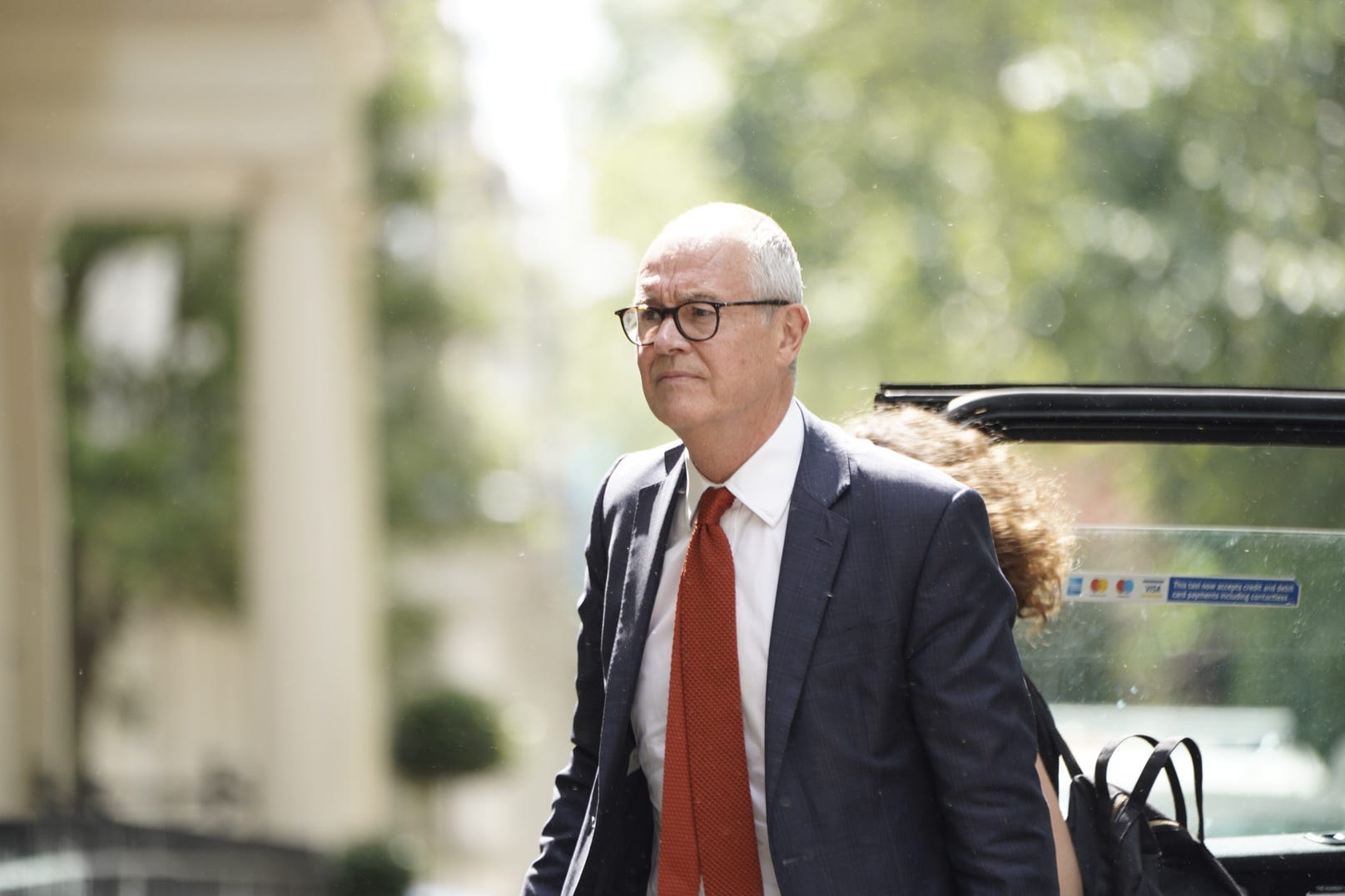Covid Inquiry chair says releasing Patrick Vallance diaries would be ‘premature’
Eight media organisations called for the entries to be shown in context as part of a full diary page.

Your support helps us to tell the story
From reproductive rights to climate change to Big Tech, The Independent is on the ground when the story is developing. Whether it's investigating the financials of Elon Musk's pro-Trump PAC or producing our latest documentary, 'The A Word', which shines a light on the American women fighting for reproductive rights, we know how important it is to parse out the facts from the messaging.
At such a critical moment in US history, we need reporters on the ground. Your donation allows us to keep sending journalists to speak to both sides of the story.
The Independent is trusted by Americans across the entire political spectrum. And unlike many other quality news outlets, we choose not to lock Americans out of our reporting and analysis with paywalls. We believe quality journalism should be available to everyone, paid for by those who can afford it.
Your support makes all the difference.The chairwoman leading the Covid-19 Inquiry has declined to decide whether or not Sir Patrick Vallance’s diary entries should be published in full.
Baroness Heather Hallett told the probe on Thursday that it would be “premature” to make a decision on the issue and wishes to see how the notes are used as proceedings go on.
Earlier this week, Sir Patrick’s lawyer Matthew Hill said a diary kept by the former chief scientific adviser was “a brain dump” written “at the end of immensely stressful days to protect his mental health”.
It comes after eight media organisations joined forces to make a submission to the inquiry calling for the entries to be shown in context as part of a full diary page.
Mr Hill said they were “never intended for publication” and the inquiry’s use of the notes amounts to an interference in Sir Patrick’s right to private and family life under Article 8 of the European Convention of Human Rights and the common law.
He suggested that a new document should be created containing the “relevant extracts”.
I wish to see how the notes are used and the extent of the use. I also wish to hear much fuller submissions on the principle issue of conducting the difficult balancing exercise of Sir Patrick's Article 8 rights and the rights under Article 10
Baroness Hallett said: “The issues of publishing the whole page upon which an extract appears and publishing the whole of the notes are inextricably linked.
“In my view, therefore, it would be premature to decide the first issue now. I wish to see how the notes are used and the extent of the use. I also wish to hear much fuller submissions on the principle issue of conducting the difficult balancing exercise of Sir Patrick’s Article 8 rights and the rights under Article 10.
“The time for preparation of and presentation of submissions at the short hearing on Monday was extremely limited. And therefore the advocates did not have in my view sufficient opportunity to address the principle issue in much detail if at all.”
She added that “for the time being” the inquiry will “adopt the practical approach of bringing up the relevant extracts being put to a witness on screen but not the full page”.
The extracts will then be published following the day’s hearing.
“We will proceed on this basis until the resolution of the substantive issue,” Baroness Hallett said.
“For documents other than Sir Patrick Vallance’s notes, we shall continue to display and publish the whole page or pages, subject only to redactions for sensitive and or irrelevant private material.
“I acknowledge the concerns expressed by some about ensuring that all the most significant passages in the notes are put to witnesses when necessary, and I rely on counsel to the inquiry and to the participants to ensure that happens.
“I too shall be monitoring the situation. I shall also keep under review whether or not the passages upon which the advocates wish to place reliance should be put into greater context by publishing larger sections of the text.”
The eight media organisations are Guardian News & Media Limited, Reach Plc, the BBC, ITN, Telegraph Media Group Limited, Associated Newspapers Limited, Times Media Limited, and News Group Newspapers Limited.
Making a submission on behalf of the group, Jude Bunting KC said Sir Patrick “does not have a reasonable expectation of privacy in the redacted notes”.
He added: “They have been disclosed to the inquiry, judged to be ‘clearly relevant’, provided to all core participants, and repeatedly referenced in open hearings.”
The inquiry continues.